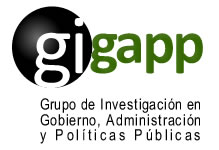Open Government: The new clothes of the Emperor? The paradoxes of a paradigm under construction and its reflection in Latin America
Abstract
In recent years, the concept of open government has spread strongly and has been installed on the world political agenda in a surprising way. However, it is an idea and a model in the construction phase whose ambiguity and lack of consensus definition can significantly harm the potentialities attributed to it, as a new paradigm that allows building capacities to adequately take on the challenges of the 21st century, putting in practice the principles of transparency and openness, participation and accountability in public affairs. The article discusses the origins and scope of the concept and proposes an operational definition. In addition, and taking the case of the recently created "Open Government Partnership" (OGP), a framework of reference is proposed to evaluate the action plans that the Latin American countries have committed to join this initiative. In this perspective, the comparative analysis of action plans allows get lessons and learnings that can help strengthen and consolidate efforts to “open” governments in the region, from a vision linked to the concept of open and collaborative governance. Finally, we examine the possibility that under the label of open government can be promoted a new agenda for government reform and modernization of public administration in the coming years in Latin America.
Downloads
Those authors who have publications with this journal, accept the following terms:
a. Authors will retain their copyrights and guarantee the journal the right of first publication of their work, which will be simultaneously subject to the Creative Commons Attribution-NonCommercial-ShareAlike 4.0 International (CC BY-NC-SA Recognition License). 4.0) that allows third parties to share the work as long as its author and its first publication are indicated in this journal.
Under this open access license, readers (users) can:
- Share — copy and redistribute the material in any medium or format
- Adapt — remix, transform, and build upon the material
Under the following terms:
-
Attribution — Users must give appropriate credit, provide a link to the license, and indicate if changes were made. You may do so in any reasonable manner, but not in any way that suggests the licensor endorses you or your use.
-
NonCommercial — Users may not use the material for commercial purposes.
-
ShareAlike — If remix, transform, or build upon the material, users must distribute your contributions under the same license as the original.
- No additional restrictions — Users may not apply legal terms or technological measures that legally restrict others from doing anything the license permits.
b. Authors may adopt other non-exclusive license agreements for the distribution of the version of the published work (eg: deposit it in an institutional telematic archive or publish it in a monographic volume) provided that the initial publication in this journal is indicated.
c. Authors are allowed and recommended to disseminate their work through the Internet (e.g. in institutional telematic files or on their website) before and during the submission process, which can lead to interesting exchanges and increase citations of the published work. (See The effects of open access).



